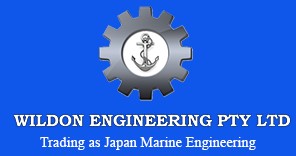Key Properties of Marine Dual Fuel Engine from Yanmar
Blog | July 26th, 2022
One component of marine vessels that should be functional all the time is the marine engine. A marine engine burns fuel to provide the needed power for ship components. It transforms thermal energy into mechanical energy, ensuring that the marine vessel can move through the water.
Nowadays, most marine vessels utilise engines that run on diesel. Smaller ones, alternatively, often go for gasoline engines. Given the rising costs of these fuel types, owners of marine vessels go for engines that can save them money without compromising the functions of their ships. Yanmar, fortunately, has designed a marine dual fuel engine that can be useful for many ship owners.
An Overview of a Dual Fuel Engine
A lot of engines that are being maximised by marine vessel owners today can only process one type of fuel. But through a dual fuel engine, ship owners like you can make it work by utilising a combination of two different fuels. Most of the time, this type of engine can effectively run on diesel and natural gas fuels. But if natural gas is not available, you can still utilise this type of engine by using diesel fuel only. Different mixtures of landfill gas, biogas, biodiesel, and others can also be used for this engine.
The option to utilise two different types of fuels can be helpful if you want to save tons of money. Keep in mind, however, that not all dual fuel engines can be efficient for a long time. It all still depends on emissions produced, quality of the natural gas, natural gas substitution rate, and equipment reliability.
Dual Fuel Engine Key Advantages
Most of the advantages associated with dual fuel engines are related to the environment. Since natural gas can be used to power them, the need to depend heavily on diesel and other non-renewable energy sources can be reduced significantly. It will then minimise the need for diesel fuel suppliers to consume energy just to provide you with fuel products. The more energy saved, the better it will be for the environment. Utilising natural gas can also help ship owners attain more savings.
Utilising Yanmar Dual Fuel Engines
One manufacturer that produces high-quality dual fuel engines is Yanmar. What is great about their offerings is they can fit with natural gas in any region in the world. Yanmar dual fuel engines are likewise known for being the world’s first engines to be compatible with single-engine single-shaft vessels.
The dual fuel engines from Yanmar comply with IMO NOx Tier3 regulations as well as SOx Emission Control Area. Their compliance with these regulations allows them to be effective in powering up various types of marine vessels without any issues.
Another great thing about these marine dual fuel engines is they can be regulated based on one’s needs. Users of these engines can easily select which type of fuel they want to use. Hence, switching from diesel mode to gas mode during navigation will not be a problem. These engines can even shift safely and quickly from gas mode back to diesel mode in case of emergencies.
To acquire Yanmar dual fuel engines for your marine vessels, you can contact us at Wildon Engineering.
Optimized by NetwizardSEO.com.au
Recent Posts
- Marine Anchor and Chain: Innovations in Anchor Technology for Modern Vessels
- Marine Supplies and Dry Docking: How Japan Marine Spares Improve Efficiency
- Marine Deck Cranes & Machinery Supply from Japan Marine Engineering: Navigating the Global Market in 2024
- Marine Diesel Turbochargers: New Equipment and Spares from Japan Marine Engineering
- KEMEL Stern Tube Seals: Amplifying Engine Propulsion and Propeller Shaft Longevity
- Mitsubishi Selfjectors: The Cutting-Edge Oil Purifiers for Marine Vessels
- Marine Vessel Spare Parts: Australian Global Supplier for Shipping Industries
- Yanmar Fuel Injection Valves: The Power of Precision in Marine Engine Performance
- Why Yanmar Fuel Injection Pumps are the Reliable Choice for Your Engines
- Yanmar Diesel Engine Maintenance: Advantages of Using Genuine Yanmar Parts and Fluids
